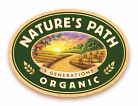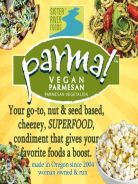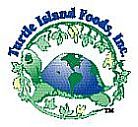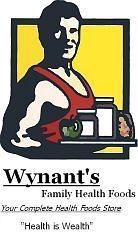The Scoop
EVEN
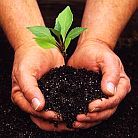
Non-violence
Compassion
Sustainability
All Life is
Interconnected
Eugene Veg Education Network (EVEN) - serving as a vegan resource since 2005
Veg Wisdom
People often say that humans have always eaten animals, as if this is a justification for continuing the practice. According to this logic, we should not try to prevent people from murdering other people, since this has also been done since the earliest of times. - Isaac Bashevis Singer
EVEN Featured In:
~ Vegan Voices
(Beyond Joy)
~ Health Science Magazine (Member Spotlight)
~ Boomer News Interview (NW Boomer and Senior News)
~ 24 Carrot Award (Vegetarians in Paradise)
~ Vegan Awareness Year (Mayoral Proclamation, City of Eugene)
~ American Vegan Magazine (American Vegan Society)
~ Volunteer of the Year (United Way)
Become a Member
Please visit our sponsors!
Click on their logos below.
Veg Spotlight
Shop to Support EVEN
Use AmazonSmile for your purchases and Amazon will donate to EVEN!
Veg Wisdom
It is only by softening and disguising dead flesh by culinary preparation, that it is rendered susceptible of mastication or digestion; and that the sight of its bloody juices and raw horror does not excite intolerable loathing and disgust. - Percy Bysshe Shelley
Articles - Other
Supporting Community and Local Agriculture
by Hilliard Gastfriend
For decades the United States has shifted away from traditional, sustainable agriculture and moved towards high-energy, artificially-fertilized, and petrochemical pesticide-based farming, primarily to allow for mega farms and other corporate farming practices. With the advent of industrial organic chemistry that mushroomed after WWII, many farmers embraced, or were encouraged to forgo, a number of traditional farming practices. Where farmers once rotated crops, left portions of fields fallow for a season, and depended upon natural fertilizers, they now plant mono crops and use herbicides and chemical fertilizers to increase their yields and artificially enrich their soil. But this gain of crop yields comes at a severe price: the erosion of topsoil and the increased risk of more powerful insect pests that requires increasingly large doses of herbicides in a never ending cycle.
In addition to the changes in farming practice, the business model of farming has also changed. Transporting produce hundreds and thousands of miles has become commonplace, defying logic and sacrificing the very quality and taste of the fruits and vegetables that reach our tables. Most supermarkets think nothing of offering produce from countries in the Southern Hemisphere in order to guarantee year-round availability of certain products. But changes may be occurring in the collective consciousness of our nation to reverse those trends, and supporting local agriculture, preferably organic agriculture, may be making a comeback.
Here in Eugene the planting season for most local agriculture has arrived, and many organic farms are reaching out to people to contract with them to buy their quality produce and by-pass the traditional supermarket system and replacing it with a Community Supported Agriculture (CSA) system. This type of arrangement could not be better for vegetarians and vegans, who rely so much on high-quality produce and consume much greater quantities of produce than average Americans. While variations exist in how CSA works, the system primarily follows these simple protocols:
1) Households agree to pay farmers at the beginning of the season.
2) Each week the farmers deliver boxes of produce for each household.
The differences arise in:
- how long each farmer's season lasts,
- which types of produce are offered,
- whether the farmer solely supplies the produce or is part of a co-op of local farmers,
- methods of delivery and pick-up, and
- the size of the boxes of produce.
Most local farmers are preparing for their first deliveries for mid- to late May. Prices vary from $20 to $40 per box, depending upon how large a household (or shared households) are taking part. Many of these same farmers are familiar to those who visit the Saturday Market regularly. In fact many participating CSA farmers offer discounted prices on their Saturday Market customers for those who participate in CSA programs.
The most comprehensive source of information on how to find the right match with a given farmer may be obtained from the Willamette Farm and Food Coalition. They can be reached at 541.341.1216 or on the Internet at http://www.lanefood.org
(Hilliard Gastfriend is an EVEN member, volunteer and supporter.)




